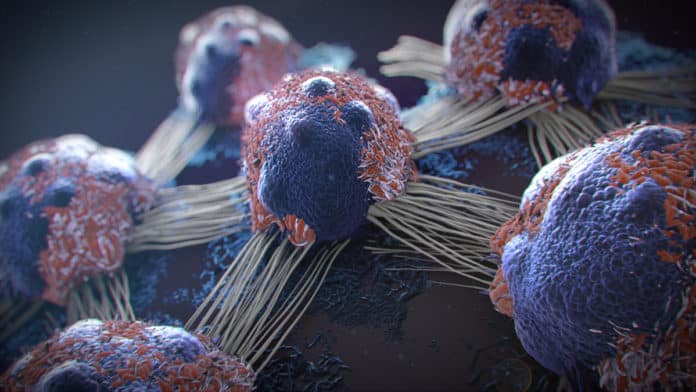Early Detection of Cancer; Scientists Seek Clues to How Cancer ‘is Born’
British and American researchers are now teaming up to search for the earliest signs of cancer disease in a bid to detect & treat the disease before it emerges.
Researchers plan to “give birth” to cancer in the laboratory to see exactly what it looks like when they are “born”.
It is just one of the study priorities of the new International Alliance for Cancer Early Detection.
The early detection of cancer will mean patients benefitting more quickly.
Cancer Research United Kingdom has teamed up with the Universities of Cambridge, Manchester, University College London
, & Stanford and Oregon in the United States, to share ideas, technology, and also their expertise in this area of cancer research.Together, the researchers are aiming to develop very less invasive tests, such as blood, breath & urine tests, for monitoring the patients, improve imaging techniques for detecting cancer at its early stage and look for the virtually undetectable signs of the cancer disease.
But researchers admit this is “like looking for a needle in a haystack” and it could take another 30 years off.
The main problem is that researchers never get to see cancer being born in a human being, said Dr. David Crosby, head of early detection research at Cancer Research United Kingdom.
Scientists from Manchester, for example, are growing human breast tissues in the laboratory with synthetic immune cells to see if these cells can spot the very earliest, subtle changes that could actually lead to cancer.
Prof Rob Bristow said it was similar to a living tissue bank outside patients.
Yet there is always the danger of this kind of over-diagnosis because not all early cell changes turn into cancers.
So the cancer scientists say they must be more precise, also looking at the genes people are born with & the environment the individuals grow up in, to work out an individual’s unique personal risk of developing different cancers.
Only then will they know when to intervene.
To date, researchers say studies on early detection have been small-scale & disconnected, lacking the power of trials in a big population of people.
Dr. Crosby said this new collaboration would “induce a sea-change in the health systems, shifting it from expensive firefighting of late-stage disease to being able to intervene at its earliest point & deliver rapid, cost-effective treatment for cancers.
Figures show that 98 percent of breast cancer patients live for 5 years or more if the diseases are diagnosed at stage 1 – the earliest stage- compared to just 26 percent at stage 4, the most advanced stage.
But, at present, only around 44 percent of breast cancer patients are diagnosed at the earliest stage.
In the UK, screening programs exist for breast, bowel & cervical cancers, when people reach a particular age.
However, there are currently no reliable screening tools for other cancers, such as pancreas, liver, lung, and prostate, which means survival rates are often much lower.
Prof Mark Emberton, from UCL, said the growth of imaging, such as MRI, was a “silent revolution” which could replace needles, used in biopsies, in the diagnosis of prostate cancer.
“Imaging only sees the aggressive cells, it overlooks the stuff you don’t want to find and addresses over-diagnosis,” he said, but he warned it was expensive and took time, and was “not ready for prime time yet”.
More accurate hyper-polarised MRI scans and photoacoustics, where laser light is delivered to the tumor, creating sound waves that are analyzed to produce images, are the next advances being tested in imaging.
Prof Emberton said that their next goal was to see which cancers lent themselves to this type of imaging.
Prof Rebecca Fitzgerald of the University of Cambridge is developing an advanced endoscope that can detect pre-cancerous lesions in the food pipe & colon.
She added that the early detection had not been given the attention it deserved, and some tests for cancer could be very simple & inexpensive.
Prof Fitzgerald said that she looked forward to working with international colleagues to take ideas “all the way from the bench to the bedside”.
Cancer Research UK is investing about £40m in the International Alliance for Cancer Early Detection over the next 5 years, with around $20m being contributed by Canary Center at Stanford University & the OHSU Knight Cancer Institute in Oregon.






























